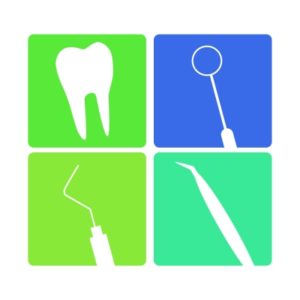Blog
Four Worst Carnival Foods for Teeth
 It’s the middle of summer, which is the busy season for vacations and weekends that include outings to the State Fair, local carnivals, and even amusement parks for some family fun. Dentists in SW Portland, OR Dr. Howard Jarvis and Dr. Tiffany Goldwyn and their team at Southwest Portland Dental encourage patients of all ages to avoid these carnival foods in particular while having fun.
It’s the middle of summer, which is the busy season for vacations and weekends that include outings to the State Fair, local carnivals, and even amusement parks for some family fun. Dentists in SW Portland, OR Dr. Howard Jarvis and Dr. Tiffany Goldwyn and their team at Southwest Portland Dental encourage patients of all ages to avoid these carnival foods in particular while having fun.
Fried Potatoes
This particularly greasy food comes in a variety of forms in carnivals, fairs and amusement parks. French fries – crinkled, steak cut or shoestring – are usually the side dish of choice, accompanied by a calorie-heavy condiment for dipping like ketchup or ranch dressing.
Avoid these fried potatoes by opting for a serving of fresh fruit or vegetables if possible as a new form of carnival food. When they ask if you would like fries with your meal, be ready with a request for cut strawberries or carrot sticks. You can still have some of the ranch dressing for the veggies since the fried potatoes will be off your plate!
Elephant Ears
Not really from elephants, these huge slabs of fried dough covered in butter or sugar are a carnival food named after the size of actual elephant ears. This should be the first clue that this snack isn’t one to eat without sharing with a few people.
The carnival food known as elephant ears – and similar fried dough choices – are made from butter, flour, sugar and shortening, which are high in calories and fat that pose all manner of risks to the human body. One of these is a build up of plaque that leads to gum disease if left untreated. Save your smile and the rest of your body through bypassing the fried dough at the fair.
Corn Dogs are Double Trouble
Nitrate-filled hot dogs covered in a sugary batter and then deep fried are double trouble. Loaded with calories and saturated fat, these unhealthy sticks of dough-covered meat are carnival foods that are also full of sodium. This can lead to dehydration during those hot summer afternoons and evenings when you’re trying ot have fun at the fair.
Cotton Candy
Not woven to be used as fabric, cotton candy is made of sugar, artificial flavoring, and food coloring. Plus, it’s sticky, which means that the sugar adheres to the surfaces of your teeth until it’s brushed away several hours later. Avoid this danger to your teeth and skip the cotton candy while you’re at the fair.
It might seem impossible to avoid these foods while having fun at the State Fair or the carnival. It is, however, essential to take care of your teeth with at least eating these fair foods in moderation and coming in to see SW Portland Dentists Dr. Tiffany Goldwyn and Dr. Howard Jarvis to keep your smile healthy and bright all year long, Call Southwest Portland Dental at 503-244-8112 for your summer appointment!
Photo Credit: bunchofpants via Compfight cc
What is Your Morning Dental Routine?
 A dental routine is part of the overall process of waking up and getting on with the day. Dentists in Hillsdale Portland Dr. Tiffany Goldwyn and Dr. Howard Jarvis and their team at Southwest Portland Dental encourage patients of all ages to maintain their dental health through a thorough and effective dental routine each morning.
A dental routine is part of the overall process of waking up and getting on with the day. Dentists in Hillsdale Portland Dr. Tiffany Goldwyn and Dr. Howard Jarvis and their team at Southwest Portland Dental encourage patients of all ages to maintain their dental health through a thorough and effective dental routine each morning.
But what makes a good morning dental routine? What daily habits should be included for good overall dental health? Let’s take a look.
Brush Before or After Breakfast?
Some of our patients at Southwest Portland Dental prefer to brush their teeth as soon as they get out of bed, while others ask, “If I brush before breakfast, won’t my teeth just get dirty all over again?”
Brushing before breakfast can be beneficial as the number of bacteria present on the surfaces of your teeth is reduced before being exposed to food. When the acid production is less than normal, the damage to teeth is also reduced, which helps fight tooth decay. If you use fluoride toothpaste, this can provide extra protection since tooth enamel incorporates the mineral into itself to defend against acid.
But there is some truth to waiting until after breakfast to brush your teeth, simply because they like to have a glass of orange juice or cup of coffee without the added flavoring that toothpaste provides. This keeps bacteria from turning food particles into the acid that harms teeth, brushes away plaque, and offers an excellent opportunity for flossing. It also keeps your mouth fresh and rinsed, ready for the day!
Regardless of when you choose to brush your teeth in the morning, it’s also imperative to brush them at night before bed. Bacteria has a naturally tough competitor in our mouth and that is saliva. However, during the night our mouth dries up so keeping them clean before bed is ideal. It is especially important if you’re a sleeper who sleeps with the mouth open. Even the lack of movement from the lips and tongue while sleeping gives bacteria a chance to wreck havoc.
More Morning Dental Routine Tips
Avoiding dental erosion in the morning is of utmost importance for long-term good dental health. Here are a few suggestions for your morning routine to help!
- When you’re drinking an acidic drink such as juice or coffee, use a straw to reduce the amount of contact with your teeth.
- If you can do without the juice or coffee, try drinking water or milk.
- Chew on some sugar free gum after eating. Gum chewing produces saliva which neutralizes the acid in your mouth
- Another way to neutralize the acid is to finish your meal with milk or cheese.
Nothing can replace the effectiveness of a solid morning routine for good dental health, which will help give you a bright and healthy smile for the rest of each day! To shake up your dental routine, call Portland dentists Dr. Jarvis and Dr. Goldwyn at 503-244-8112 to schedule your personal appointment!
Taking the Mystery Out of Dental Tools
 Dental tools used during dentist appointments are often out of sight. It’s common to kick back in the dentist chair with the light shining in the sunglasses we provide and wonder what exactly is going on, which may cause some patients dental anxiety. Dentists in Hillsdale Portland Dr. Tiffany Goldwyn and Dr. Howard Jarvis and their team want patients to be as comfortable as possible to ensure your dental health, which includes taking some of the mystery out of the dental tools that we use.
Dental tools used during dentist appointments are often out of sight. It’s common to kick back in the dentist chair with the light shining in the sunglasses we provide and wonder what exactly is going on, which may cause some patients dental anxiety. Dentists in Hillsdale Portland Dr. Tiffany Goldwyn and Dr. Howard Jarvis and their team want patients to be as comfortable as possible to ensure your dental health, which includes taking some of the mystery out of the dental tools that we use.
Poking Around Your Mouth?
Dental tools have a bad reputation for looking scary, but these simple aids help us to get a better look at your dental health. The mouth mirror helps the dentists and staff to look in every crevice and corner of your mouth, in front and behind teeth to observe the condition of teeth and gum tissue. This casual observation can tell our dentists a lot regarding your dental health, and what might need a little more investigation.
Probing for Dental Health
Another tool is a common probe, which is an angled tool used to locate any developing decay, cracks, plaque and calculus buildup and potential problems with crowns, fillings, or dental bridges. A different probe we use is called a periodontal probe. This tool measures the depth of gum tissue to see if there are potential or current pockets that occur in periodontal disease and threaten your good dental health.
What’s the Motor For?
Motorized sounds in a dental office are often associated with drills, but they can actually be attributed to what’s called a handpiece. For good dental health, a handpiece is used with a variety of attachments to clean and repair teeth, including placing dental fillings, completing chip repair, performing tooth polishing and for root canals.
Tweeze, Please
You might not think of tweezers when it comes to your dental health, but ones that lock and unlock help dentists pull smaller objects from teeth or gum tissue in order to perform careful reconstructions or restorations.
Disposable Saliva Ejector
This dental tool has an unusual name, but is very necessary for good dental health. This is the tool that may be referred to as “the sucker,” which suctions saliva from your mouth during teeth cleanings and dental work.
Cotton Pliers
In addition to saliva ejector, there might be a need for wool cotton rolls for absorption, and they are handled with the tool called Cotton Pliers. These resemble tongs with a tapered point, and the name of them can seem scary while the tool itself is not.
Hopefully this run-down helps to alleviate some of the fear of seeing those sharp and shiny instruments that will be used. Each one has a specific purpose that has been tried and tested over the years for precise and successful dentistry.
The dentists and team at Southwest Portland Dental are here to help you become more comfortable and confident taking care of your smile and dental health. Call Southwest Portland Dental at 503-244-8112 to schedule your personal appointment!
Dental Health Tips for Seniors
 If you are 50 or older, than you know the basics of taking care of your teeth – what you may not know is that the needs of our teeth change as we age. Dentists in Hillsdale Portland Dr. Tiffany Goldwyn and Dr. Howard Jarvis encourage patients of any age to understand how to best take care of their smiles to ensure the best possible dental health.
If you are 50 or older, than you know the basics of taking care of your teeth – what you may not know is that the needs of our teeth change as we age. Dentists in Hillsdale Portland Dr. Tiffany Goldwyn and Dr. Howard Jarvis encourage patients of any age to understand how to best take care of their smiles to ensure the best possible dental health.
How Our Teeth Change as We Age
Just like the rest of our lives, teeth change as we get older. They become stained, weaker and more brittle, requiring more specialized care for good dental health.
No matter how good our dental health habits have been up to this point, it is inevitable that each of us will deal with some form of dental disease, like periodontal disease, as we age. However, the proper care that now has to be incorporated will go a long way toward good dental health.
Brush and Floss Teeth More Often
The basic recommendation for brushing and flossing teeth is to brush them twice a day – once at morning and once at night before bed – and floss once a day for complete dental health. As we get older, it’s a good idea to step this up. For example, consider brushing your teeth after every meal as well as when you get up and while getting ready for bed.
After the age of 50, plaque becomes more difficult to remove and builds up quickly. All of this brushing removes plaque, not giving it a chance to build up at all and negatively effect gum tissue. These strong habits go a long way toward good dental health.
Maintain a Moist Mouth
As we get older, more and varied medications are often required in order for us to remain in good overall health. These medications, however, can often cause a condition called “dry mouth,” which is basically a reduction in saliva and negatively effects our dental health.
Saliva is essential for our dental health, protecting our teeth through neutralizing bacteria and rinsing away food particles that lead to plaque build up. To combat dry mouth, make an oral rinse a part of your dental habits during the day, and consider chewing sugar free gum to help generate saliva.
Go Gentle on Gum Tissue
As we age, our gum tissue begins to weaken and thin, which poses a risk for gum disease. While brushing and flossing throughout the day, be aware that these activities can tear gum tissue, so be as gentle as possible. If your teeth and gums have become sensitive, make an appointment for a consultation by calling Southwest Portland Dental at 503-244-8112.
Increase the Frequency of Dental Visits
While regular checkups may have been fine every 6 months up to this point, it might be a good idea to increase the frequency of your visits to Southwest Portland Dental. This will help Dentists in SW Portland, OR Dr. Tiffany Goldwyn and Dr. Howard Jarvis maintain up-to-date and accurate records on any potential or recurring issues and offer you state of the art dental care and treatment to fit your needs. For your personalized appointment, call Southwest Portland Dental at 503-244-8112
Should Your Child Use a Mouthguard?
 Sports for kids and adults of any age are a lot of fun, but what if playing your favorite sport caused you or your child to lose a tooth? SW Portland Dentists Dr. Harold Jarvis and Dr. Tiffany Goldwyn at Southwest Portland Dental encourage their patients to consider using a mouthguard while playing a sport that could hurt their smiles.
Sports for kids and adults of any age are a lot of fun, but what if playing your favorite sport caused you or your child to lose a tooth? SW Portland Dentists Dr. Harold Jarvis and Dr. Tiffany Goldwyn at Southwest Portland Dental encourage their patients to consider using a mouthguard while playing a sport that could hurt their smiles.
What is a Mouthguard?
A mouthguard is an essential piece of athletic equipment because it protects teeth and gums. It is a low cost, rubberized piece of sports equipment that, with eat and in the convenience of your kitchen, be customized to fit your child’s mouth. They help protect teeth, gums, cheeks and tongues from injury as a result of contact in sports like basketball, skating, biking, hockey, football and more. Mouthguards are recommended for any sports that pose a threat to your child’s dental health.
Which Type of Mouthguard Should My Child Use?
As many children play a wide range of sports these days, there are many kinds of mouthguards available in local sports and drug stores. However, these mouthguards can be classified into three basic types:
- the ready-made mouthguard
- the “boil and bite” mouthguard
- the custom mouthguard made by a dentist
All three types of mouthguards provide protection depending on its type. Most of the time, a mouthguard protects only the top teeth as it covers them.. A custom-fitted mouthguard from Southwest Portland Dental can be made specifically for your child based on the sport itself. The most efficient mouthguard should fit properly, be easy to clean, and last a long while. Your child should be able to speak breathe easily and comfortable while using the mouthguard.
Which Sports Require Mouthguards?
At Southwest Portland Dental, the dentists and staff recommend that mouthguards be used by your child if there’s a risk of injury to teeth, cheeks, gum tissue or tongue. The the International Academy for Sports Dentistry and the American Dental Association have put together this list of sports where a properly fitted mouthguard would be beneficial.
- Football
- Track and Field Events
- Gymnastics and Acrobatics
- Basketball
- Boxing
- Field Hockey
- Handball
- Ice Hockey and Skating
- Lacrosse
- Racquetball
- Soccer
- Softball
- Wrestling
Caring for a Mouthguard
Regardless of the type of mouthguard you get for your child, it will require regular care and cleaning. Work with your child to brush it after each use, scrubbing it with a toothbrush and toothpaste and rinsing it thoroughly. Make sure that the mouthguard has a sturdy case to help protect it from germs and to keep the mouthguard in good working order.
At Southwest Portland Dental, we want our patients to feel safe and secure in any situation, and especially help them to avoid injury. For more information or for answers to your questions regarding whether or not your child should use a mouthguard, call Southwest Portland Dental at 503-244-8112 to schedule an appointment.
